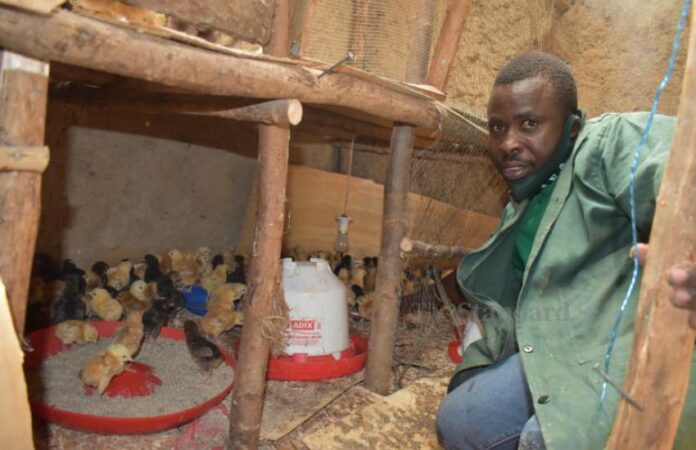Jacktone Ambole’s journey to success in the farming industry has been filled with challenges, setbacks, and lessons learned.
After graduating with a degree in Public Health from Moi University in Kenya in 2014, Ambole secured a scholarship to pursue further studies in the United States.
He then worked for an NGO in the US before returning to Kenya with the goal of venturing into full-time farming.
Donate sheep to Kenyatta family, Jubilee pleads with Kenyans
However, his plans took an unexpected turn when he decided to run for a local political seat in the 2017 elections but lost, leaving him almost bankrupt after spending a significant portion of his savings on the campaign.
“My prime goal when coming back was to venture into farming full-time, but when an opportunity in politics presented itself, being a risk-taker, I decided to try my luck,” he narrated in a past interview.
Ambole’s determination and resilience led him to explore other options, and in 2018, he met Peter Ndeche, a poultry farmer who was training farmers on commercial poultry rearing.
Ambole used his remaining savings of Sh 20,000 to buy 50 improved Kienyeji (indigenous) chicks, feeds, and set up the necessary structures to start his poultry farming venture.
He started small but with a clear plan in mind. Within three months, he sold 50 birds for a profit at a local wedding, and he reinvested the earnings back into the business.
He gradually expanded his poultry house, bought more chicks, and procured an incubator with a hatching capacity of 528 eggs and a generator for backup power. He also changed his strategy from selling only mature birds for meat to keeping some birds for egg-laying as well.
Ambole diligently followed a vaccination regimen for his birds, ensuring their health and well-being. He also focused on marketing and networking to widen his customer base. He formed community self-help groups and provided them with training on best practices in poultry farming, as well as giving them day-old chicks to start their own farms.
This helped him establish a network of farmers whose eggs he bought and hatched, enabling him to sell chicks throughout the year.
By October 2018, Ambole was collecting between 350 and 430 eggs daily, totaling about 9,600 eggs a month. He sold day-old chicks for Sh 100, a week-old for Sh 120, two-weeks-old for Sh 150, and a month-old for Sh 200.
He also sold fertilized eggs to locals at Sh 20 each. Ambole’s marketing efforts and dedication to quality and customer satisfaction helped him build a reputation as a reliable supplier of healthy chicks.
With his poultry business gaining momentum, Ambole diversified his farming ventures. In 2019, he purchased two-acre plots of land in Ebukuya village and started cultivating tissue culture bananas, kales, black nightshade, and beans.
He used the poultry waste as fertilizer on his farm, demonstrating his commitment to sustainable farming practices.
Ambole’s hard work and determination eventually paid off, and his business began to break even. He continued to expand his customer base by selling bananas and other produce from his farm, utilizing his networking skills and marketing strategies.
He was able to sell bananas for prices ranging from Sh 700 to Sh 1,500 due to their large size, and his reputation as a successful farmer grew in the community.
Reflecting on his journey, Ambole acknowledges that his experience in politics, though challenging, taught him valuable lessons about resilience, risk-taking, and diversification.
He credits his success in farming to his unwavering commitment to following best practices, networking, and continuously learning from his experiences.









